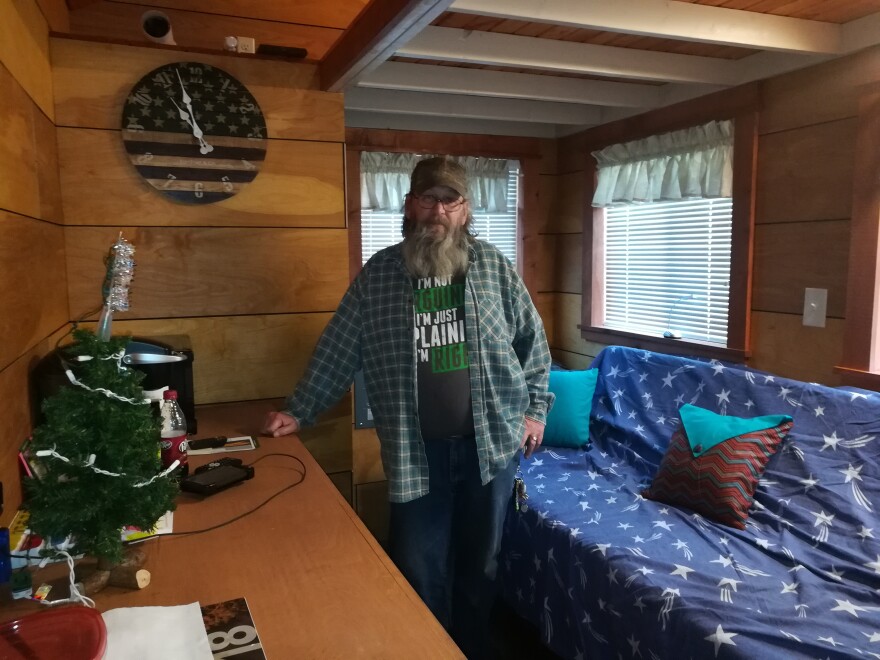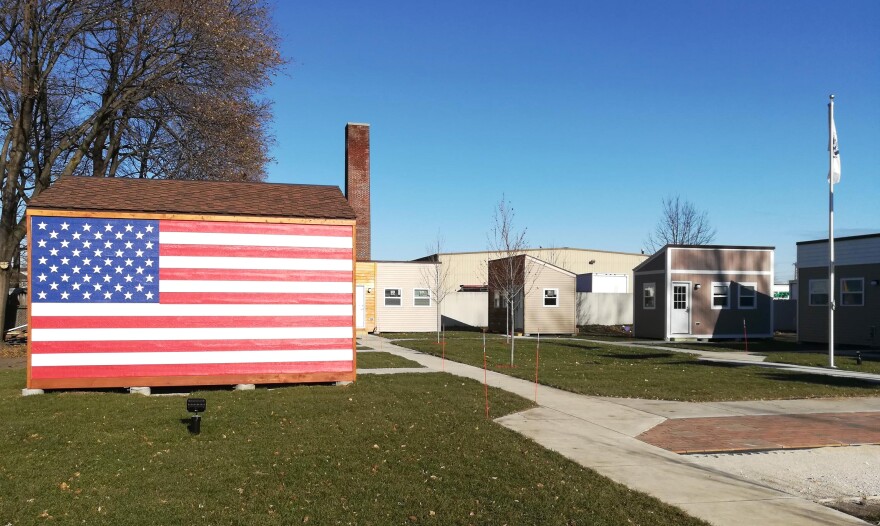Across the country, tiny homes are being used in a number of ways. Some people enjoy the novelty of living in a small space; for others, the tiny houses are an answer to homelessness. A new, tiny home community in Racine is giving homeless veterans a shot at independence.
Think about the size of your home and then ask yourself, could you live in 128 square feet? For residents of Racine’s new tiny home community, 128 square feet is more than they ever could ask for. They used to be homeless. But now, each of them lives in a tiny home, furnished with a TV, mini fridge, microwave and a couch, which doubles as a bed.
There's also a community center, about a 30-second walk away from the 15 or so homes. It houses bathrooms, as well as kitchen and laundry facilities.
Michael Lueck, who was the first to move in, holds back tears as he talks about how grateful he is. “It makes me real emotional to talk about it,” he says.

Lueck is 64 years old. Before moving into his tiny home, which he helped build and decorate with an American flag, he spent the last seven months sleeping on his son’s couch.
“I never had anybody try to help me out to this extent before. So right now, it just means the world to me,” Lueck says.
Lueck voluntarily joined the army during Vietnam, but never saw combat. Yet he has disabilities that he says have kept him from holding down a job for the last 15 years.
“Some OCD and bipolar and severe depression, but I also have a titanium ball and shaft in my right shoulder so I have limited movement in my right arm and in 2013, I had three broken vertebrae’s in my back,” Lueck says.
Right now, he says his only income is his social security disability and he can’t afford to live on his own. As a veteran, Lueck will be allowed to stay in Racine's tiny home community free of charge for two years. During that time, he -- and the other residents -- will be put through a number of programs, from money management to therapy to alcohol and drug treatment.
Jeff Gustin is executive director of Veterans Outreach of Wisconsin and also the brain behind the tiny home village.
“We’re offering them a hand up, not a hand out. They’re working for this. This is a program that they enrolled into (be)cause they want to better their lives. So we just want to give them the assistance to make that happen,” Gustin says.
But just how successful are transitional housing programs? Kathryn Monet, chief executive officer for the National Coalition for Homeless Veterans, says in general, people don't stay long.
“In those transitional housing programs for VA, I think the average length of stay is really only six to nine months,” she says.
Some people leave because they’re at a place where they no longer need help; Monet says, while others simply can’t handle the program. She says homeless veterans can be a tough population to serve.
According to the National Coalition for Homeless Veterans, many people need help because of the lasting impact of PTSD and substance abuse, "compounded by a lack of family and social support networks."
Jeff Gustin of Veterans Outreach of Wisconsin says his organization built the tiny home village to try to make a difference. “The need was brought to our doorstep. Once we started getting calls weekly from homeless veterans, we thought we had to do something to try and solve the problem."





